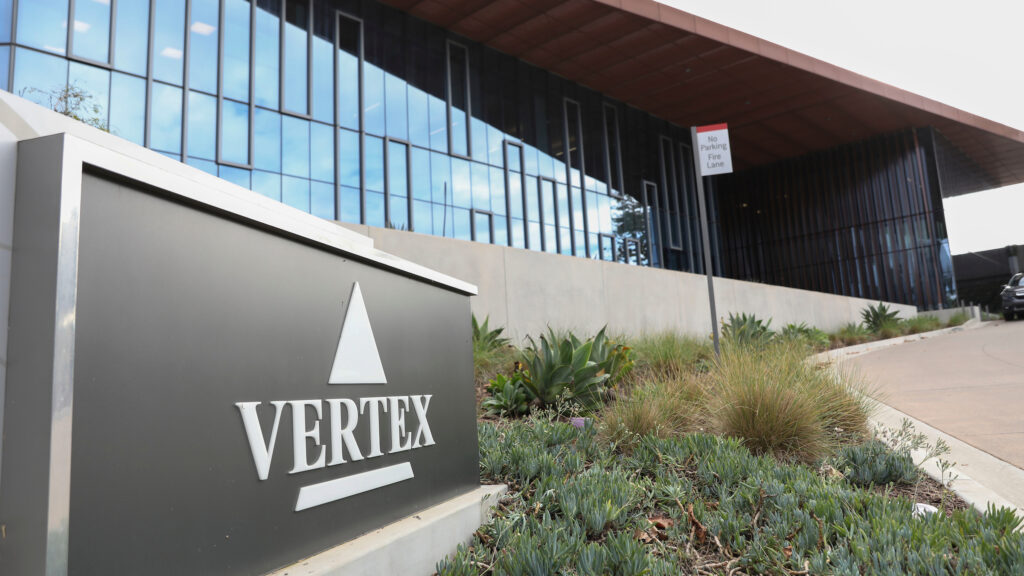Want to stay on top of the science and politics driving biotech today? Sign up to get our biotech newsletter in your inbox.
Hello from ASH! Writing this Readout from a press room at the annual hematology confab here in San Diego. Today’s edition is chockfull of Vertex content, plus some extras from ASH and elsewhere.
advertisement
Vertex’s Joshua Boger is colorful
Joshua Boger, founder of Vertex Pharmaceuticals, still finds the company’s new sickle cell approval flabbergasting: “I would have lost a house in a bar bet if I had bet that Vertex would be the first company to bring a CRISPR drug to the world,” he told STAT. In a wide-ranging interview, Boger — who stepped down from his helm in 2017 after 28 years there — spoke about his work at Vertex, how he imagines biotech’s future, and what he thinks of Elon Musk. (Spoiler: He’s “extremely weird. He just doesn’t connect with people.”)
As for biotech, despite the generally gloomy environment, Boger has “never been more excited by the scientific and medical possibilities.” He also considers it to be “mathematical lunacy to blame health care costs on drug prices.”
advertisement
CAR-T drugs effective in autoimmune disease
Two-and-a-half years after receiving a CAR-T infusion, 15 patients with autoimmune diseases remain in complete remission, new data presented at ASH show. This includes nine people with lupus, four with systemic sclerosis, and three with inflammatory myositis.
CAR-T cells were initially engineered to fight B cell cancers, but they are now being explored as targeted weapons against the malfunctioning B cells in autoimmune diseases. Researchers at the University Hospital Erlangen in Germany tested this out first in a young patient with lupus: “She had no treatment options, and it became clear if she didn’t receive any treatment she would be dead in a few months,” the study’s lead author told STAT. “She couldn’t sleep laying down because her heart was failing. She couldn’t walk more than 10 meters because her lungs were failing.”
The CAR-T approach here was risky, because it wasn’t clear if the lupus was driven by B cells or T cells, “so nobody knew if we were going to kill that patient or help her,” he said. “The patient in the end was super brave.”
Now, the patient is back to a normal life, and able to jog five times a week. The subsequent 14 patients treated with this approach have seen similar results, and some have seen some reversal of the organ damage inflicted by their respective autoimmune diseases.
The backstory to Vertex’s experimental non-opioid painkiller
The quest for non-opioid painkillers has been pretty bleak — until now, perhaps. Early next year, Vertex Pharmaceuticals will release late-stage trial data of a drug that blocks pain-sensing neurons from signaling the brain. The drug’s being tested in post-surgical pain, as well as in diabetic patients with chronic nerve pain. If the studies are successful, Vertex is looking to win approval for the small molecule drug, dubbed VX-548, to treat moderate to severe acute pain. Analysts think it has blockbuster potential, with estimates that sales might reach as much as $5 billion by 2030.
Vertex has been developing this experimental drug for decades. It’s a long, winding story that involves Nobel Prize-winning proteins that glow and a 10-year-old Pakistani street performer who felt no pain.
ICER lays out cases of price hikes without justification
Last year, costs spiked for eight common medicines without any valid rationale — leading to $1.2 billion in extra costs to patients and insurers. AbbVie is responsible for the biggest spike: The wholesale cost for its blockbuster inflammation drug Humira rose 7.1% — leading to an additional $386 million spent on this drug, according to a new ICER report. Second in line was Johnson & Johnson’s multiple myeloma drug Darzalex, whose wholesale cost rose 6.8%, leading to $248 million more in spending. And third is Pfizer’s breast cancer drug Ibrance, whose wholesale price rose 6.9% and resulted in $151 in additional spending.
“We continue to see list price increases above inflation for many of the most costly drugs,” ICER chief medical officer David Rind said, adding that “many had no substantial new evidence to support such price increases.”
More reads
-
After sickle-cell screwups, Bluebird Bio’s only option might be a company sale, STAT
- Intrigued by Novartis and Lilly deals, investors pour money into radiopharmaceutical, FierceBiotech
- Messy RSV shot rollout puts infants at risk, Bloomberg
- Was CAR-T therapy a bystander or driver of lymphoma? Researchers examine first published case, STAT

